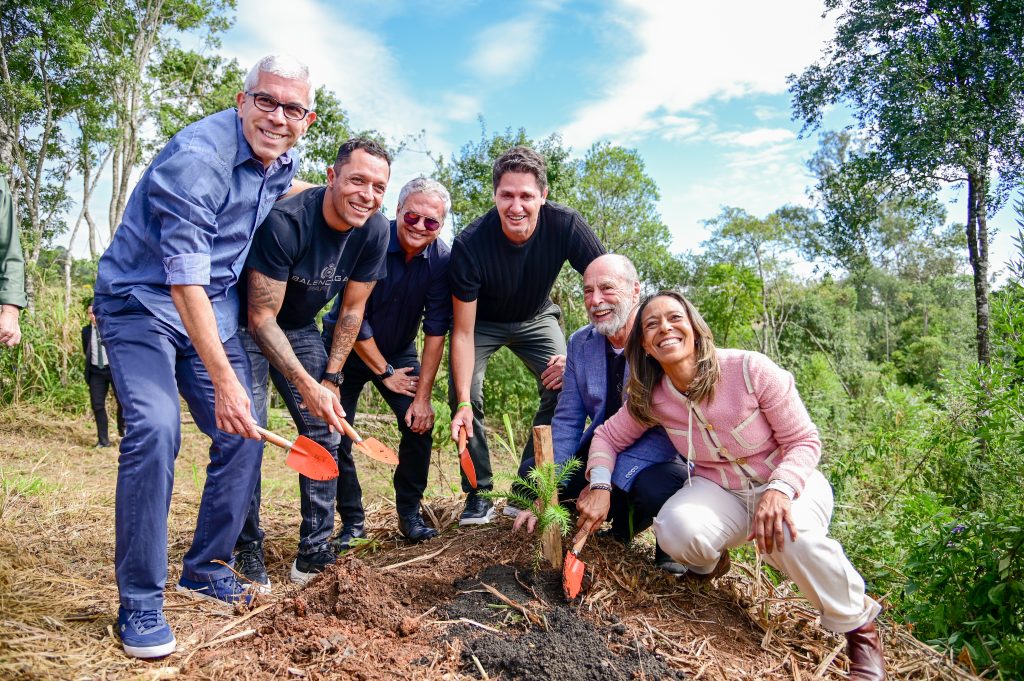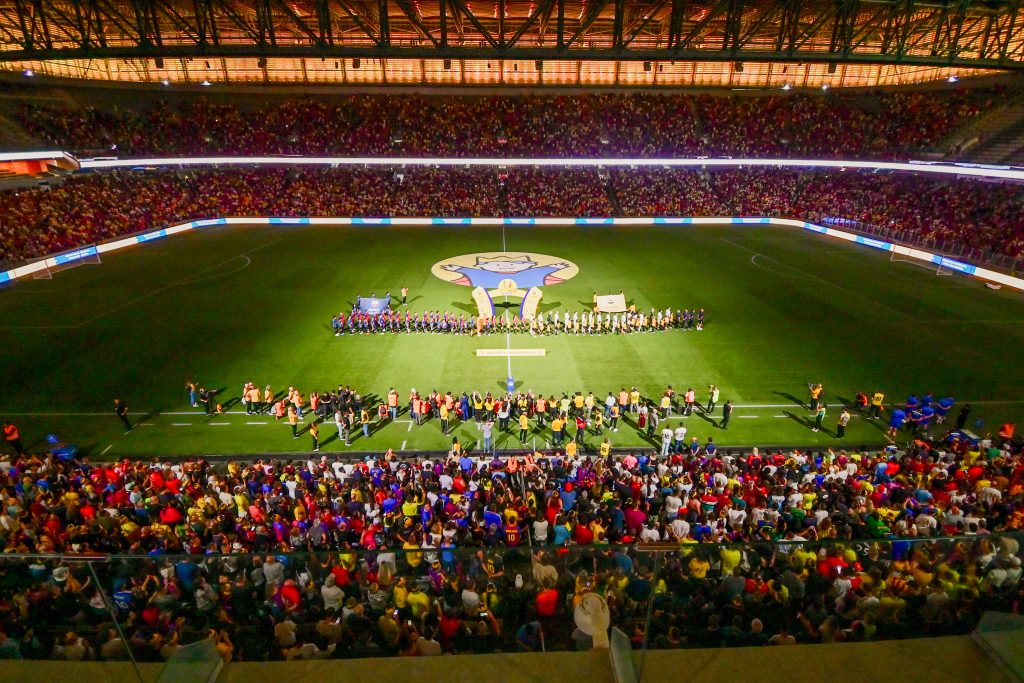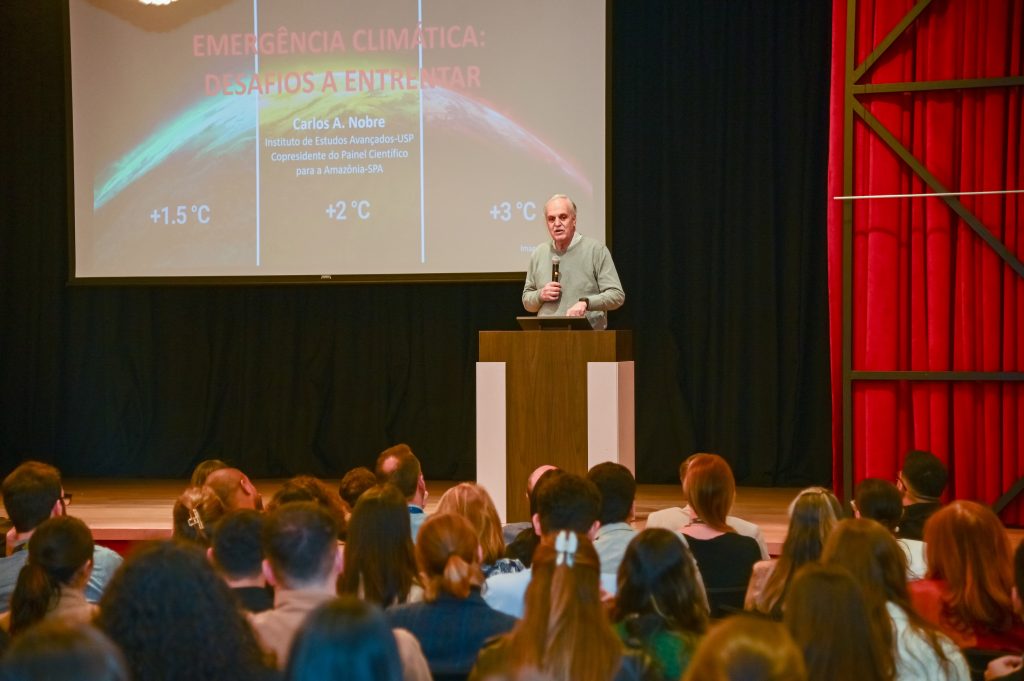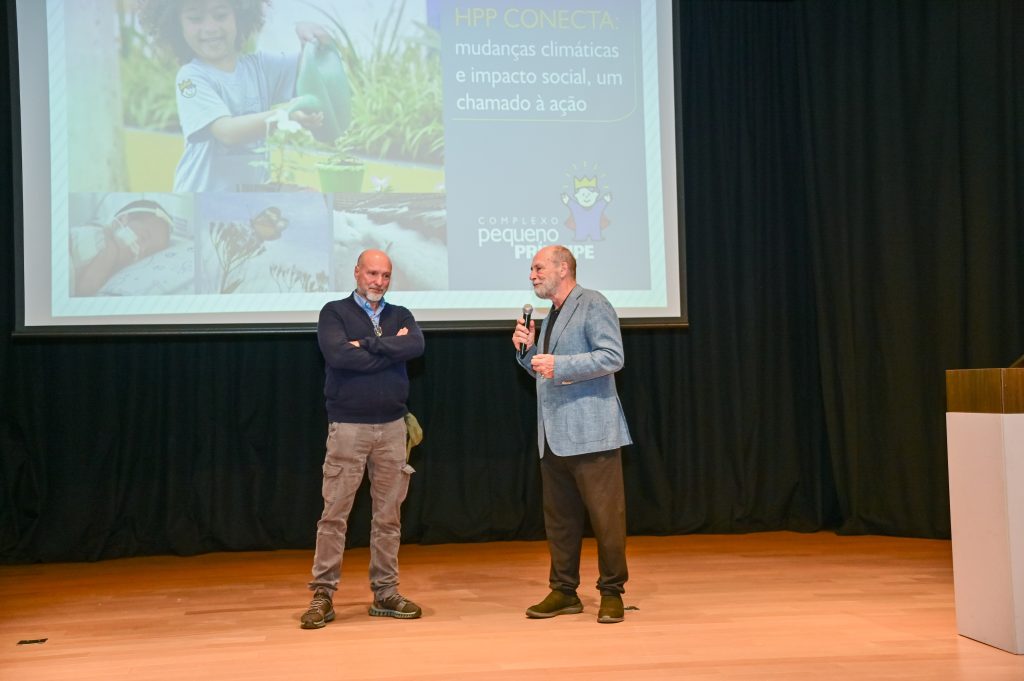Pequeno Príncipe reinforces commitment to climate agenda and turns health into an ally of the environment
Event brought together climatologist Carlos Nobre and marked the delivery of the carbon offset certificate for the Pelé Pequeno Príncipe Legends Game

The Pequeno Príncipe Complex, a reference in child health care in Brazil, took another strong step toward environmental sustainability by promoting symbolic and concrete actions in Curitiba to address the climate emergency. In April, at the Pequeno Príncipe North unit, the institution planted ten trees as part of the carbon offset process for the Pelé Pequeno Príncipe Legends Game – one of Brazil’s first carbon-neutral soccer games, held in November 2024.
This action reinforces the institution’s pioneering role in aligning health, sports, and the environment, highlighting soccer’s transformative potential as a platform for environmental awareness. The event brought together public figures such as the climatologist Carlos Nobre, the environmentalist Roberto Klabin, renowned former athletes, and Complex administrators.
“Soccer can – and should – be a tool for social and environmental transformation,” said the Complex’s corporate director, José Álvaro da Silva Carneiro. “With this initiative, we aim to inspire the sports sector and society to adopt sustainable practices and contribute to a healthier, more balanced future,” he add.

The game’s emissions, calculated by Federal Technological University of Paraná specialists based on the GHG Protocol, totaled 44.4 tons of CO₂ equivalent – with air travel as the main contributor. To neutralize the impact, 272 trees will be planted, along with other carbon sequestration and reduction strategies.
The initiative is part of broader climate actions by the Complex. On the same day, the event “The Challenges of Climate Change and its Impact on Health and Society” gathered experts to discuss the risks of global warming and its implications for public health.

Carlos Nobre warned of the imminent risk of Amazon collapse and emphasized the need for integrated measures to address the crisis. Roberto Klabin shared innovations and resistance efforts during devastating fires in the Pantanal, including creating shelters for wildlife and organizing private ecological corridors.

During the event, Pequeno Príncipe also presented its ongoing sustainability initiatives, such as managing ten hectares of native forest at the Waters Nature Reserve on the Paraná coast – an area that has offset the Hospital’s emissions since 2021. The institution was the first pediatric hospital in the country to adopt such a voluntary practice.
With a century-long history and integrated work in health, education, and research, the Pequeno Príncipe Complex has consolidated an approach that combines science, innovation, and environmental responsibility. A member of the Global Compact since 2019 and aligned with the United Nations’ Sustainable Development Goals, the Complex reaffirms its role as a leader in building a fairer, more sustainable future – where caring for children’s health also means protecting the planet they will inherit.

